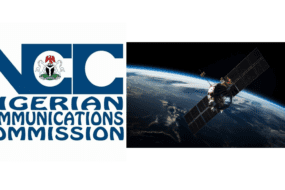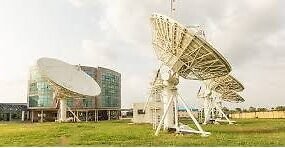Nigeria’s Federal Government has revealed plans to install 7,000 new telecommunications towers in underserved areas. The move aims to provide telecommunication access to more than 20 million Nigerians currently without connectivity. Dr. Bosun Tijani, Minister of Communications, Innovation and Digital Economy, made the announcement during a joint interview on Channels TV.
Dr. Tijani explained that the initiative is a major step towards nationwide digital inclusion. The government recently launched the first tower in Kura, a village near Abuja with roughly 12,000 residents. Before this, the community had no communication services. Now, the tower enables voice calls and internet access for the local health centre and school.
This tower deployment is part of the Tinubu administration’s wider plan to tackle Nigeria’s connectivity challenges. The government has identified a huge shortfall in fibre-optic infrastructure needed for universal broadband. Currently, Nigeria has only 35,000 to 40,000 kilometres of fibre cables, but needs about 125,000 kilometres. This gap is a key reason why many Nigerians face poor internet quality, especially for broadband-reliant apps like WhatsApp.
To address this, the government is launching a $2 billion project to expand fibre-optic coverage by 90,000 kilometres. Backed by the World Bank, the rollout is set to begin before the end of 2025 and aims to be largely complete within the current administration’s term.
Building Skills and Innovation Alongside Infrastructure
Beyond infrastructure, the government’s digital agenda includes empowering young Nigerians with technical skills. The Three Million Technical Talent (3MTT) programme has already trained nearly 130,000 youths in digital fields. According to Dr. Tijani, “3MTT is not just a training scheme, it is a pipeline for jobs, startups, and long-term innovation.”
The ministry has also supported over 50 AI-focused startups in the past year and extended broadband services to university hostels at the University of Abuja and University of Lagos. Seven more campuses will gain connectivity by June. Additionally, the Kano Innovation Hub, damaged during riots, is set to reopen soon, while a nationwide network of innovation hubs is being developed with the National Information Technology Development Agency (NITDA).
Dr. Tijani urged Nigerian youths to be proactive, stating, “Opportunity is searchable. Our job as a ministry is to clear the path. Your job is to take the first step.” He encourages them to utilise AI tools and digital resources to stay informed and seize opportunities.







One reply on “Nigeria’s Digital Leap: 7,000 Towers to Connect Millions”
[…] The Federal Government of Nigeria will launch a new venture capital grant in August 2025 to support student innovators in tertiary institutions. Known as the STEMM Up Grant, or Sciences, Technology, Engineering, Mathematics, and Medical Sciences Student Venture Capital Grant (S-VCG), this initiative aims to fund bold student-led startups with up to ₦50 million each. […]